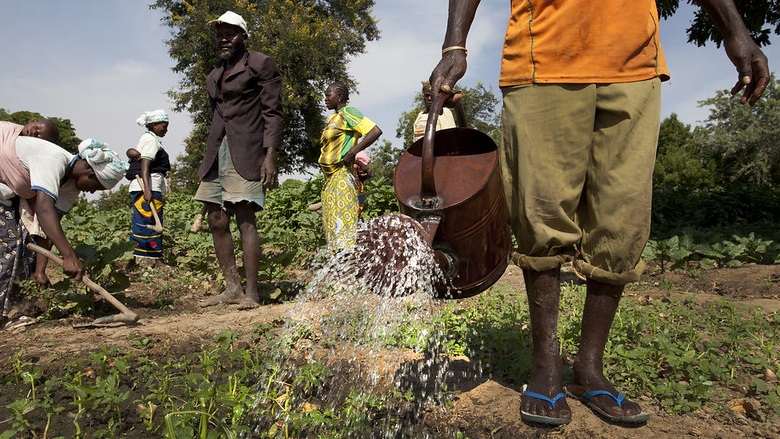Announced in 2019 at the second high-level G20 Compact with Africa conference, the Compact with Africa Green Business Fund (CwA) became operational in early 2021. With an initial capitalization of $24 million (€20 million) from the International Climate Initiative (IKI) of Germany’s Federal Ministry of the Environment, Nature Conservation and Nuclear Safety (BMU), the Fund is a part of the CwA initiative to promote private sector investment in Africa.
The Fund is part of the World Bank’s Partnership for Market Development and Innovation Facility (PMIF) umbrella trust fund, with a shared goal of supporting climate action aligned with domestic development priorities. Specifically, the CwA Fund will contribute to the acceleration of low-carbon development efforts of countries in Africa by strengthening the sustainability of the local green businesses. The program will provide capacity building to green small and medium-sized businesses in specific countries and design blended finance instruments to support and help leverage private sector investments in locally led low-carbon innovations.
With a focus on small and medium-sized enterprises (SMEs), priority areas of impact are aligned with the strategic directions from the Next Generation Africa Climate Business Plan (NG-ACBP):
- Food Security and a Resilient Rural Economy
- Low Carbon and Resilient Energy
- Ecosystem Stability and Water Security
- Resilient Cities and Green Mobility
- Climate Shocks and Risk Governance
The CwA Fund will:
- Facilitate policy dialogue with governments, the private sector, and the global community to work together to lessen the impacts of climate change and for the private sector and green businesses to play a pro-active role to tackle climate change.
- Enhance skills and knowledge of public and private sector stakeholders to pursue future climate actions. The Fund will work to remove information and knowledge barriers to attract new players to the SME market.
- Help close the gap between available climate finance resources and needs in a transformative and catalytic way by mobilizing/leveraging private finance. The financial assistance will aim for a systemic approach that targets specific barriers that restrain the push for low-carbon resilient development. Results-based finance will be evaluated as a key financial instrument to support transformative climate action.
The activities will be developed and executed on a country-specific basis, with regional or subnational level activities supported based on identified needs. Activities could include:
- Analyses of the regulatory, institutional, and financial framework for the SME sector
- Analyses of existing national strategies related to low-carbon development promoting SMEs actions
- Training and knowledge exchange programs involving fund managers, private investors, and selected financial institutions to better understand climate business models and opportunity sectors
- Entrepreneurship, business, and climate change training to SMEs to enhance capacity, skills, and expertise of eligible businesses
- Building SMEs’ capacity on the relevant standards to access international markets (e.g. certifications, safety requirements, etc.) to increase their financing options
- Establishment of financing mechanisms and climate mitigation and adaptation outcome measurement, reporting, and verification (MRV) approaches that can be used for results-based financing (which can be replicated throughout the region)
- Design and implementation of financial mechanisms or instruments for mobilizing private financing to local green businesses in target countries
Activities from the project components will target African countries, with initial engagement in 12 countries, which are members of the CwA initiative: Benin, Burkina Faso, Côte d’Ivoire, Egypt, Ethiopia, Ghana, Guinea, Morocco, Rwanda, Senegal, Togo, and Tunisia. Initial phase will focus on a subset of piloting countries.
